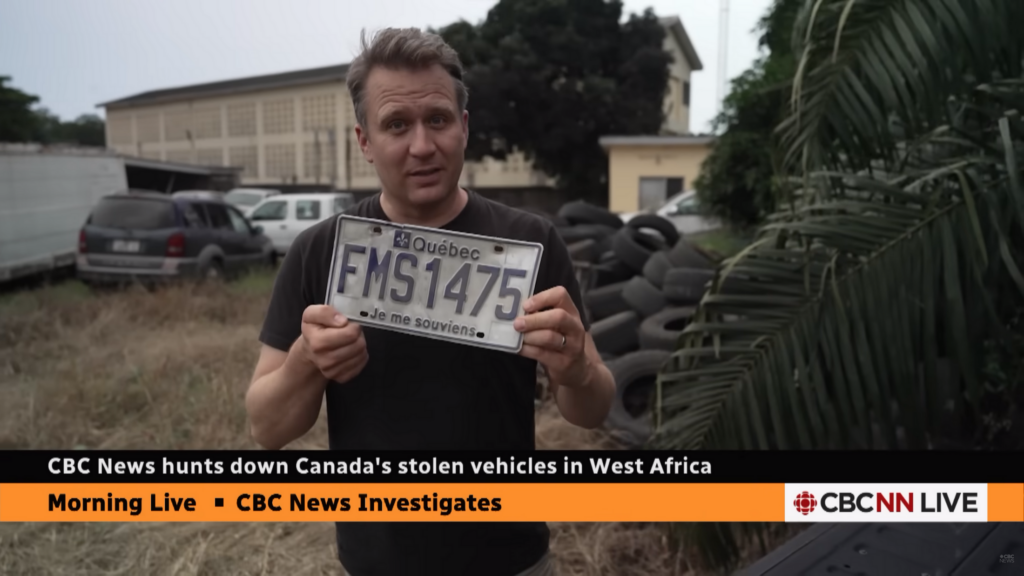As car theft rates rise sharply in Canada, the natural next question for victims is where these stolen vehicles are ending up. Anyone driving around Ghana may know, as it has become increasingly common to see Canadian cars on its roads.
Authorities are blaming Montreal’s organized crime rings for an uptick in auto thefts, focused largely around the provinces of Quebec and Ontario. In the latter jurisdiction, 27,000 vehicles were stolen in 2021 alone. The following year, the number was up 48.3 percent.
“There is no doubt that vehicle theft has reached a national crisis in this country,” Terri O’Brien, CEO of Équité Association, which investigates fraud on behalf of insurers, told CBC News.
Thanks to the increasing computerization of new cars, and the sophisticated methods criminals have found for taking advantage of cybersecurity weaknesses, a car can be stolen in minutes. As little as two days later, it can be on a shipping container, leaving the port of Montreal.
Read: Police Bust Major GTA Auto Theft Ring Recovering $17M In Stolen Cars In Canada
However, not every theft is sophisticated, and police are blaming the prevalence of car thefts for an uptick in home invasions and violent crimes, as criminals break into homes to take keys and steal cars.
The vehicles can then be shipped abroad, to Africa and the Middle East. Ghana, in particular, has become a landing point for stolen vehicles from North America. Although stolen American cars can be found, the majority are arriving from Canada, and Ghanian authorities aren’t happy about it.
“No Canadian agency has approached us directly or made a formal complaint directly,” Abdulai Bashiru Dapilah, the deputy director of Ghana’s Economic and Organized Crime Office, told CBC.
The country does what it can to seize stolen vehicles, but the people driving them mostly paid a fair market price and didn’t realize the vehicles were stolen. When the people being confronted by authorities aren’t innocent, it can also be dangerous work, and Dapilah says that his investigators face frequent threats from armed groups for what he sees as a Canadian problem.
“We are only in possession of the stolen vehicles,” said Dapilah. “The victims, the place of the crime, it’s all in Canada.”
Canadian insurers also want more action taken to address these crimes, as rates for customers rise. The Équité Association is calling for updates to the federal vehicle theft prevention regulations, while the Canadian Financing and Leasing Association is calling for an increase in the number of scanners used at ports to ensure containers are correctly labeled.
It may ultimately be difficult to stop thefts altogether, though. Police say that stealing cars is easy and pays well, making it highly attractive for organized crime syndicates.
“It’s much easier to sell 15 cars on the black market than it is to sell 15 kilos of cocaine or 15 illegal guns,” said Detective-Sergeant. Haywood, adding that criminals “are seeing that profitability.”




